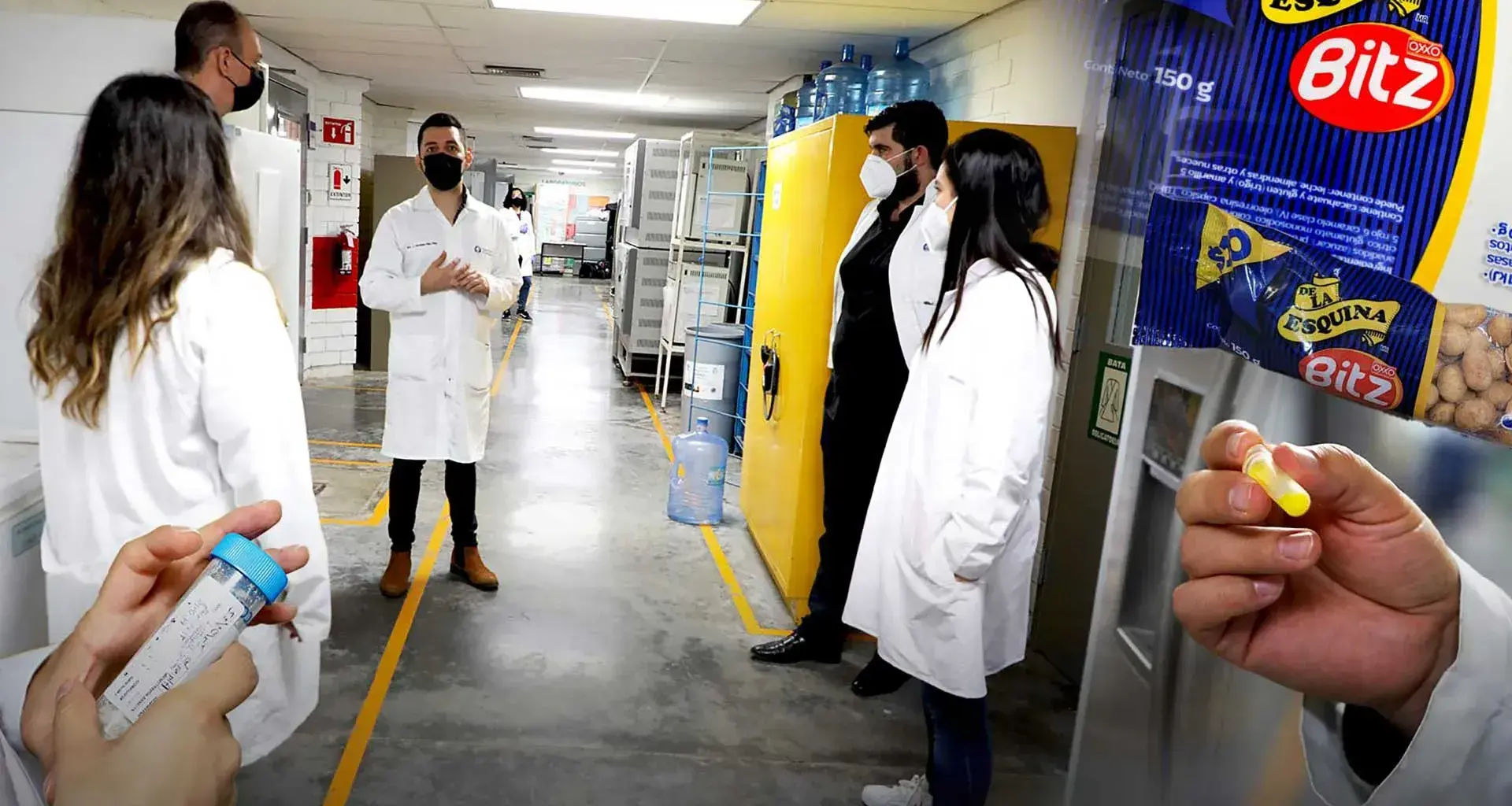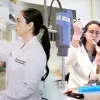To help mitigate the problem of plastic pollution, researchers from Tec de Monterrey’s School of Engineering and Sciences have created a biodegradable wrapper that decomposes faster than other packaging.
They used a petroleum-based polymer for this prototype, to which they added commercial resin, an additive that speeds up the biodegradation rate of packaging to 2 to 5 years, reported Elda Melchor Martínez, project leader at the Tec.
The researcher, who forms part of the FEMSA Biotechnology Center, also said that this rate is less than that of conventional plastic, which takes up to 200 years to fully decompose.
Development of this dry food packaging began in 2021 as part of the Sustainable and Applied Biotechnology (SAB) research group’s work, through the Tec Nexus initiative and in collaboration with the Oxxo group.
The aim is to create solutions aligned with the Sustainable Development Goals (SDGs) adopted by the United Nations.
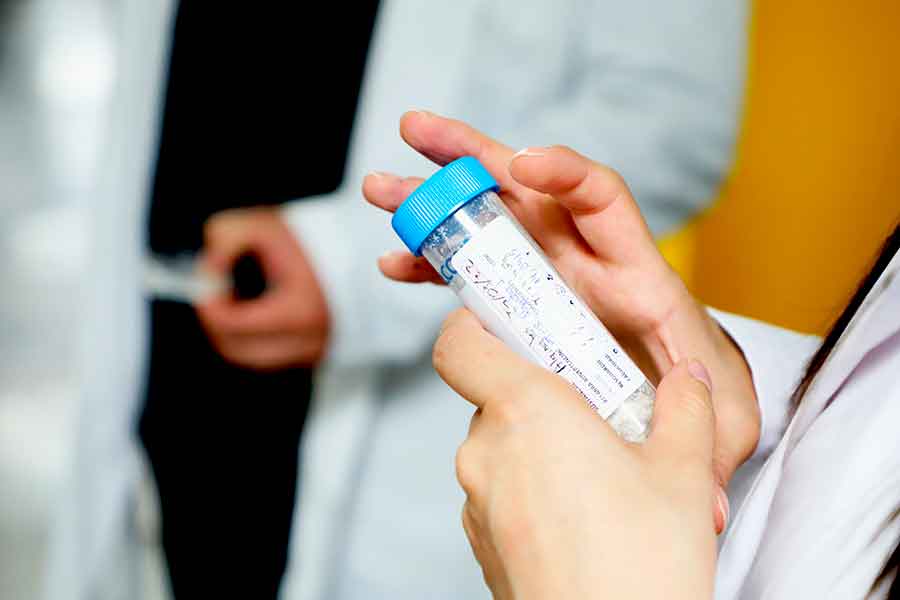
Biodegradable packaging respects food qualities
The biodegradable wrapper project was developed for packaging De la Esquina peanuts, the Oxxo store’s own brand.
The new wrapper, in addition to being environmentally friendly, doesn’t affect the flavor, smell, or expiration date of the peanuts, and offers characteristics similar to those of their conventional packaging.
“Peanuts, as a perishable food with a high fat content, have a tendency to go rancid if the packaging doesn’t prevent oxygen or light from passing through, which causes oxidation of the product,” explained Rafael Araujo, a member of the Tec research team.
“We hope this enables us to play our part and have an impact on caring for the planet.” - Elda Melchor.
The prototype was subjected to a series of shelf-life tests in order to corroborate its effectiveness for the environment and as food packaging, during which they measured the oxygen and light transmission rate, sealing, and application of ink on the plastic, as well as other analyses.
Participating in these tests were companies such as Altera, Qualyplast, Kristafilms, and Polysol, packaging suppliers for Oxxo stores. On this point, Professor Araujo said:
“It’s a collaborative effort in which we worked with Polysol, which is the resin supplier. Through them, we were able to make an additive with less resistance to the environment.
“We also tested the color of the packaging, its finishes, and the characteristics to protect this type of food.”
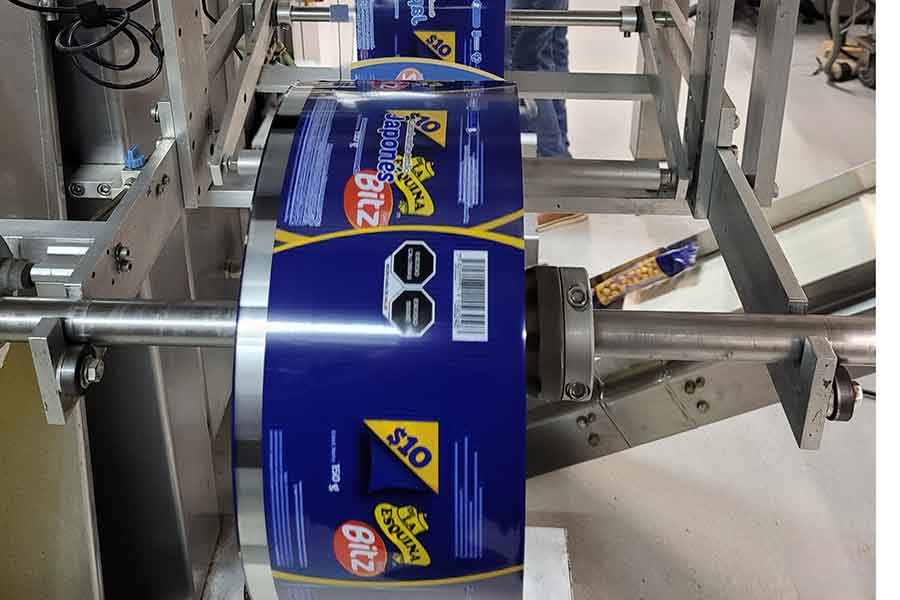
Migrating to green packaging
For researcher Elda Melchor, the development of this biodegradable packaging is part of the transition, at an industrial and commercial level, from substituting petroleum-based plastics to new green strategies.
“We’ve been working for years to disseminate the science behind this transition through international scientific publications and to show how the circular economy has a significant impact on sustainability,” she said.
She mentioned that one of the circular economy’s principles of sustainability is not to use any more fossil resources for packaging, which results in saving energy, raw materials, and fossil fuels.
In March 2022, the group of Tec and Oxxo researchers published the article “Towards a Circular Economy of Plastics: An Evaluation of the Systematic Transition to a New Generation of Bioplastics“ in the Polymers Journal, which summarizes what’s being done globally about bioplastics as this pertains to the industry, explained Melchor.
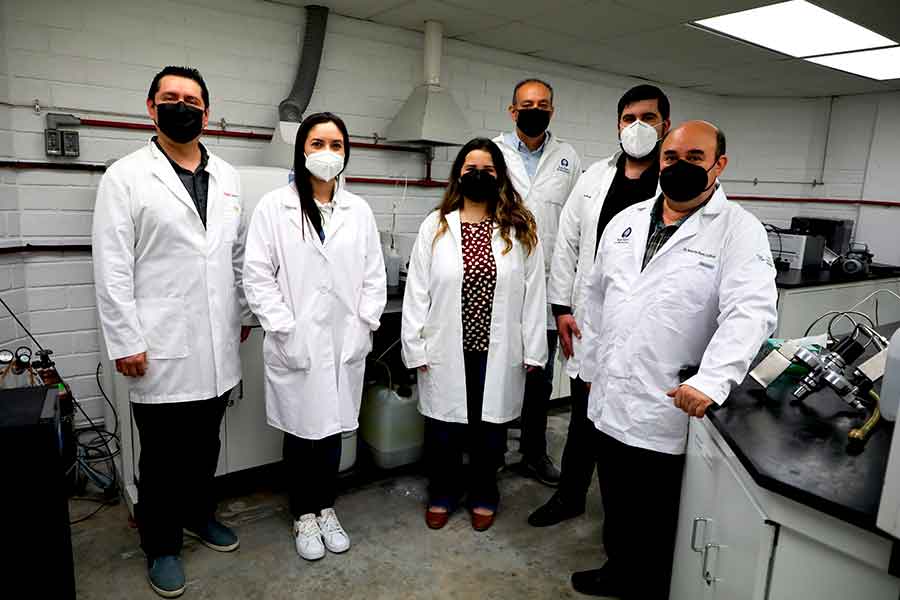
“This publication allows other groups of researchers to continue working on these issues and for companies like Oxxo to examine sustainability issues that motivate them to join in,” stressed the academic.
Oxxo’s Sustainability Manager, José Zavala, says that just as the PET industry is a success story for Mexico, which leads the way for bottle recycling in Latin America, the creation of this packaging has the same future.
“One of the great attributes of this collaboration is the multidisciplinary work, from the commercial side to the academic research.
“It’s a huge effort because it shows how leading academics and researchers contribute to resolving current needs,” Zavala said.
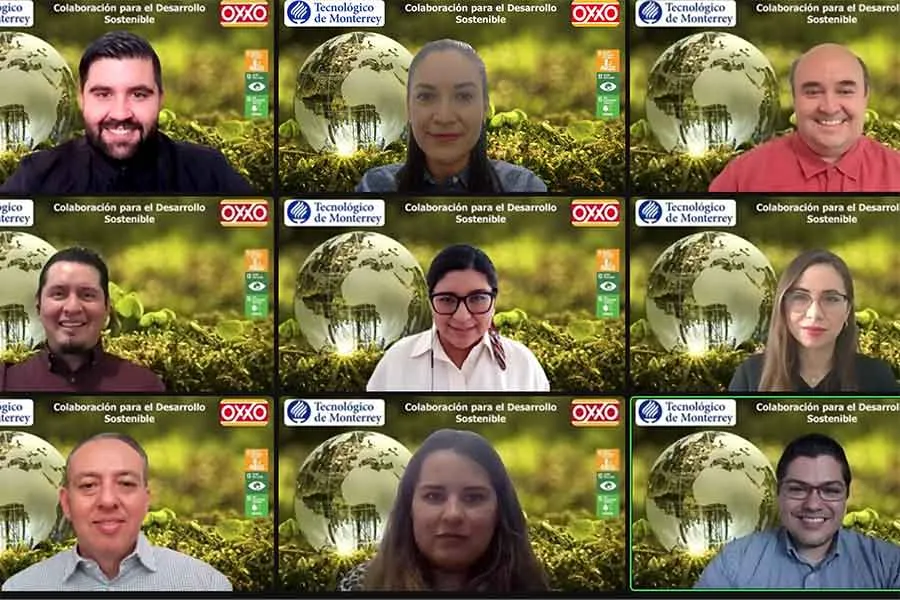
Taking it to further products
According to Oxxo’s Sustainability leader, the next step in the initiative is to include this technology in their business strategy, as well as aiming to use the new biodegradable packaging in other products with similar characteristics to peanuts.
“We have to consolidate this development on a commercial side, including the processes and the suppliers themselves so that they’re able to include new technologies. We’re agents of change that drive projects to transform and innovate on our products.”
The School of Engineering and Sciences team continues to analyze how these types of resins work to modify plastics and transform them into 100% biodegradable plastics, said Elda Melchor, adding:
“We hope this enables us to play our part and have an impact on caring for the planet.”
YOU’LL ALSO WANT TO READ:

